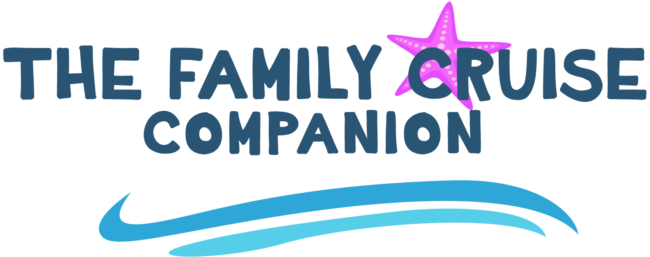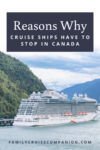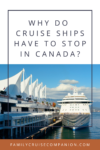Have you been looking at your Alaska cruise itinerary and wondering why do cruise ships have to stop in Canada? Thanks to the Passenger Vessel Services Act of 1886, all cruise ships registered in a foreign country that start in the US must dock at, at least one foreign port before returning to the US. Based on geography, Canada is the only logical stopover point to appease this act when traveling to Alaska.
While Canada might seem like a strange and unnecessary stop along the route of your Alaska cruise, it is often the most convenient stop for vessels moving between US ports. Below we’ll investigate the Passenger Vessel Services Act and its implications for the cruise line industry.
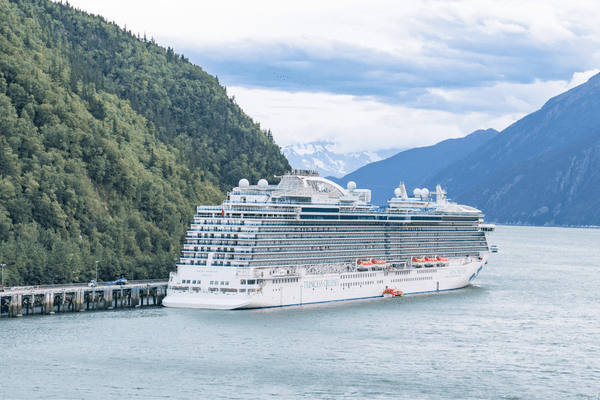
Why Do Cruise Ships Have To Stop In Canada? The Passenger Vessel Services Act And Its Implications
The Passenger Vessel Services Act 46 USC § 55103 of June 1886 (PVSA) is a United States-based law, which seeks to protect US maritime interests, both economically and in national defense, by protecting the US from foreign competition.
This act promotes the US monopoly on coastwise activities by limiting the movements of foreign vessels in US waters. Only ships built and registered in the US can transport passengers and cargo directly between US ports, while non-US ships must stop in a foreign port.
For anyone who contravenes the law, the PVSA makes provisions for a $300-US fine per passenger violating the act.
Do All Cruise Ships Need To Stop In Canada?
While not limited to Canada, the PVSA requires foreign cruise ships to dock in another country before returning to a US port. A “foreign vessel” is any vessel that does not have a “coastwise certification/qualification.” I.e., the ships were not built or registered in the US. (Note that while these ships are required to stop in a foreign port, you don’t necessarily need a passport if the sailing is a closed-loop cruise.)
Most cruise ships fly foreign flags and are therefore not coastwise-qualified and are restricted by the PVSA. Notably, most of the major cruise lines are headquartered in the United States. For instance, Carnival, Royal Caribbean, Norwegian, and Disney all have headquarters in Florida.
Nevertheless, with the exception of one Norwegian ship, all the cruise ships operated by those companies sail under foreign flags. Stated in the most simple terms, it is significantly cheaper to operate foreign-flagged ships.
While sailing to Alaska from the mainland US, Canada is en route, making it the most logical stop.
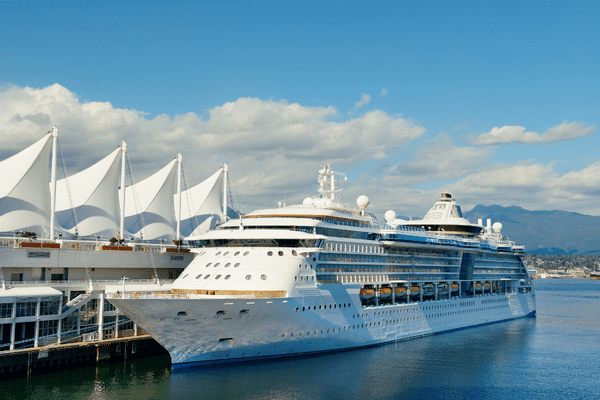
During the 2021 Covid-19 crisis, Canada temporarily closed their borders to cruise ships. This closure pressured the US Congress to temporarily exempt cruise ships going to Alaska from the PVSA.
Which Cruise Ships Don’t Stop In Canada?
- Any US-owned cruise ships do not need to land in Canada first. The only cruise ship currently flying American flags is Norwegian Cruise Line’s Pride of America which travels exclusively throughout Hawaii.
- According to the PVSA, Puerto Rico is exempted from the act. Since 1984, cruise ships sailing between Puerto Rico and the US can enter the US without incurring a fine.
- Ships registered in the Bahamas or Bermuda usually stop in Ensenada, Mexico, or Fanning Island to comply with the PVSA requirements.
- Ships not sailing to or from the US don’t need to stop in Canada.
What About US Citizens Who Own Cruise Ships?
Even if you’re a US citizen, if the ship is registered in another country, it must abide by the rules set out in the PVSA, i.e., it will need to dock in foreign waters before it is allowed to return to the US.
What About Sailing The Open Seas?
A Cruise to “nowhere” is exempted from the Passenger Vessel Service Act as it is not recognized as a coastwise transportation/leaving the US.
Therefore passengers leaving the US, traveling to a “point on the high seas,” and returning to the same US port don’t infringe on the act and don’t need to stop at a foreign port.
Summary
The Passenger Vessel Service Act is behind “why do cruise ships have to stop in Canada” on the way to Alaska. Because most cruise ships aren’t American-flagged Vessels, they are required to stop in a foreign port before returning to the US. This makes Canada a logical stop on the route from Alaska.
